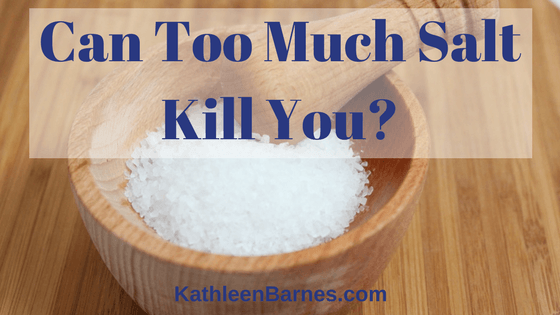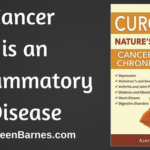We are surrounded by medical mythology, and sometimes downright lies, that is profoundly affecting our lives. The need to restrict our salt intake is just one myth that is costing many of us our health.
Do you have high blood pressure? Does some you love have high blood pressure? If so, no doubt, doctors have admonished you to severely reduce your sodium intake. That means bland, boring food. It also means you are unlikely to stick to it. But what if I told you that 90% of people with hypertension actually need more sodium in their diets?
That’s exactly what Dr. Robert Thompson wrote with me in The Calcium Lie 2: What Your Doctor Still Doesn’t Know.
Early in the 20th century, “scientific” advances brought us pretty, white, convenient table salt that was composed only of two minerals: sodium and chloride or sodium chloride. It was a fine and granular salt. It was convenient and didn’t clump in humidity like sea salt. Scientists of the time apparently considered the other 74 ionizing minerals present in unrefined rock salt and sea salt to be unnecessary, unsightly and inconvenient due to humidity causing clumping, so they were “purified” out.
The result: The first evidence of our grave error came in 1924 when we began to see iodine deficiency within our population leading to the widespread development of thyroid goiter and increasing mental retardation (enlargement of the thyroid gland and thyroid hormone deficiency and “cretinism”). This led to the addition of another mineral to sodium chloride, as potassium iodide or iodine, and our pretty white table salt became “iodized salt.” This should have been our first clue that many other vital nutrients were missing. But we failed to recognize the signals. Our collective downhill slide into widespread mineral deficiency began to accelerate.
That complex mineral deficiency includes insufficient sodium, which creates a cascade of health problems including high blood pressure.
Our bodies began to desperately seek the minerals we need to survive, to the point where they even drew on similar-acting minerals to try to duplicate the missing nutrients, actually substituting for the minerals needed.
When we took the unrefined salts like sea salt and rock salt out of our diets, we lost about 15 percent of the nutritional value of our foods.
Incorrect suggestions to limit sodium intake, even as sea salt, increased our mineral deficiencies.
Stress can cause a sodium drain and it’s needed for stomach acid production, protein digestion, for facilitating transfer of glucose and amino acids into the cells of all our organs and tissues, except fat cells.
Fat cells are a different story. They absorb glucose directly without the help of sodium and contribute to obesity by allowing other cells to starve while feeding fat cells.
Dr. Thompson says, “In my practice, I’ve discovered that the average patient has only 7.5 to 15 percent of the normal intra-cellular sodium and potassium content in spite of blood tests that show “normal” levels. That’s why I tell patients with confidence, based on tissue mineral analysis results, that they are making a big mistake when they boast that they ‘hardly eat any salt.’ ”
“I call this The Sodium Lie. More than 90 percent of us need more sodium. Only hair tissue mineral analysis (HTMA) testing can tell you for sure if you are one among that 90 percent,” he concludes.
Action plan:
- Never eat white salt. It is the nutritional equivalent of white bread or worse.
- Avoid processed foods. Among many other reasons, they are high in sodium chloride, table salt, and will increase mineral imbalances.
- Get some good unrefined sea salt. There are many brands, but Celtic, Redmond and Himalayan all have a distinctive pinkish color and flecks of darker colors that assure you it is unrefined. Use it liberally to help re-balance minerals.
- Get a hair tissue mineral analysis so you know for sure. Through his website, Dr. Thompson offers an HTMA lab that he considers the only reliable one.








So, where are we supposed to get our iodine? And if in supplement form, what sources are best and how much?
I think you have told us, but I have forgotten.
Potassium iodide is the most absorbable form of iodine. Many people use Lugol’s, availkable either in pill form or solution (tastes yucky, but very absorbable). Most experts recommend at least 12.5 mg daily, although DRI is only 150 mcg for most adults. Here’s a good resource for intake and uses of iodine: https://www.amazon.com/What-Doctors-About-Iodine-Thyroid-ebook/dp/B00THN0Q7I/ref=sr_1_1?s=books&ie=UTF8&qid=1496676128&sr=1-1&keywords=thompson+iodine. I take subtantially more because I have hypothyroidism.